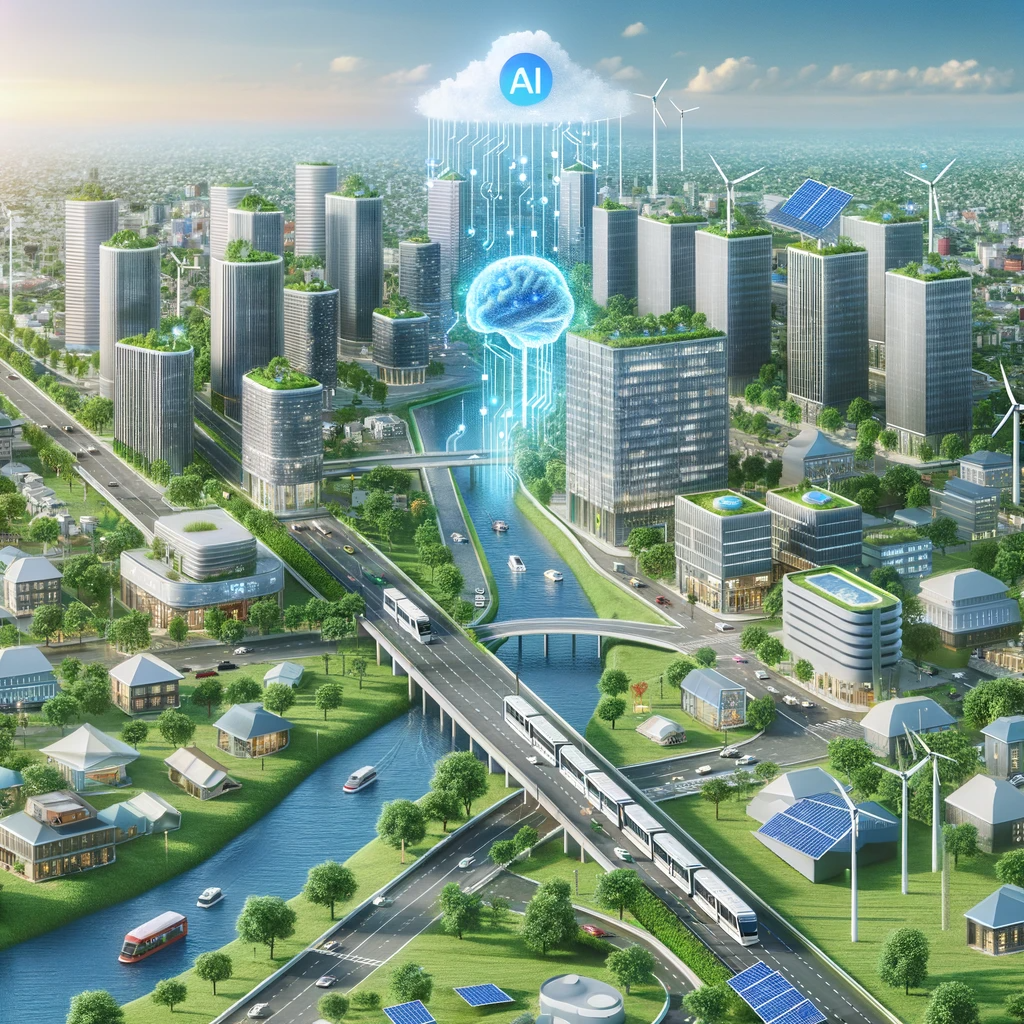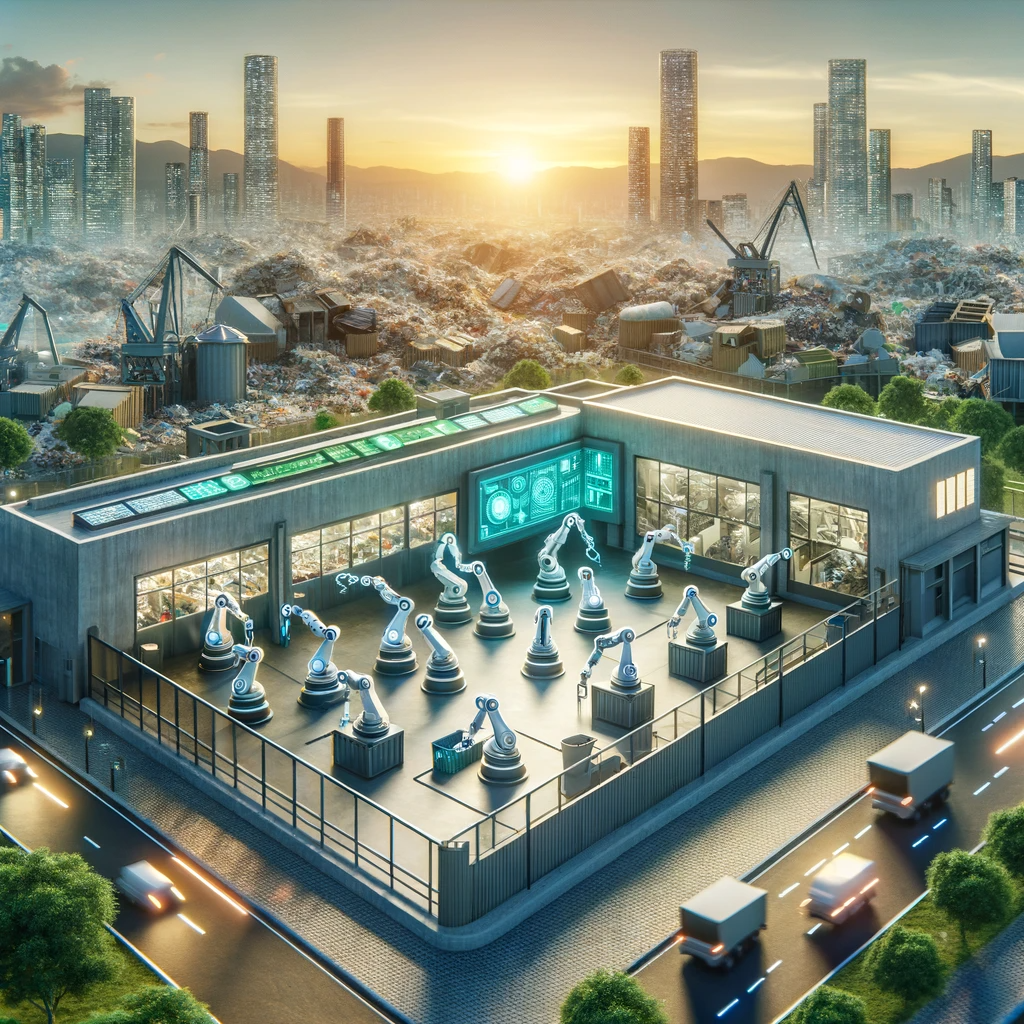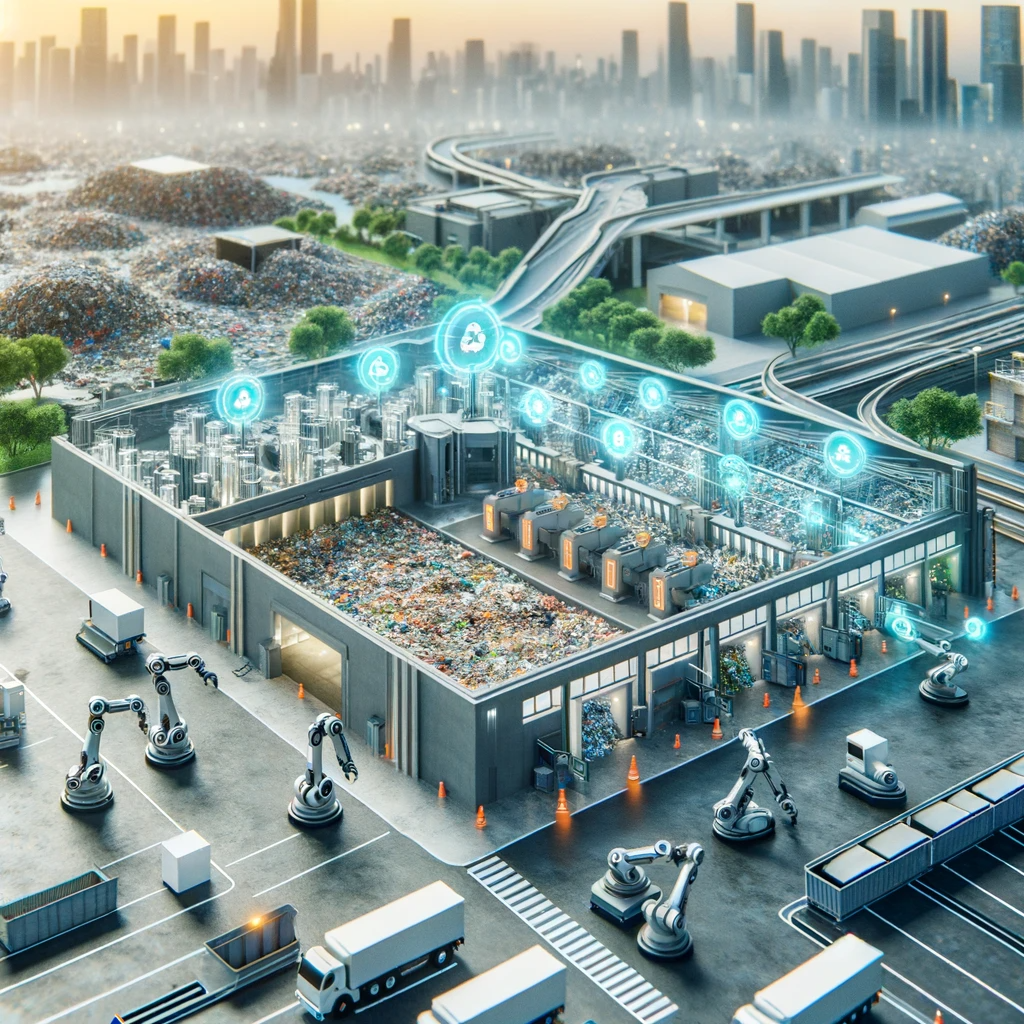As the world’s population continues to urbanize at an unprecedented rate, cities are facing complex challenges related to sustainability, efficiency, and livability. Meeting these challenges requires innovative solutions, and Artificial Intelligence (AI) is emerging as a powerful tool in urban planning and management. In this two-part article, we embark on a journey to explore AI’s potential role in sustainable urban development, delving into its applications, benefits, and the transformative impact it can have on shaping smart, eco-friendly cities.
The Urbanization Challenge
The Urban Population Explosion
Over half of the world’s population now resides in urban areas, and this number is expected to reach 68% by 2050, according to the United Nations. This unprecedented urbanization brings a myriad of challenges, including increased energy consumption, pollution, traffic congestion, and strains on infrastructure and resources.
The Need for Sustainable Urban Development
To address these challenges, cities must transition towards sustainable urban development, focusing on reducing environmental impact, enhancing quality of life, and ensuring economic prosperity. Sustainable urban development envisions cities that are not only eco-friendly but also resilient, inclusive, and technologically advanced.

AI-Powered Urban Planning
Data-Driven Decision Making
AI thrives on data, and cities generate vast amounts of data daily. AI can analyze this data to provide actionable insights for urban planners and policymakers. For example, it can analyze traffic patterns, energy consumption, and waste management data to optimize resource allocation and reduce environmental impact.
Smart Infrastructure Management
AI-driven systems can monitor and maintain critical infrastructure in real-time. This includes everything from smart grid management to water distribution systems. AI can identify faults, predict maintenance needs, and even automate energy-saving measures, making urban infrastructure more efficient and resilient.
Sustainable Mobility Solutions
One of the significant contributors to urban pollution is transportation. AI can optimize public transportation routes, promote the use of electric vehicles, and enable autonomous driving systems that reduce traffic congestion and emissions.
Benefits of AI in Sustainable Urban Development
Environmental Conservation
AI-driven solutions can help cities reduce their carbon footprint by optimizing energy usage, reducing waste, and promoting sustainable transportation methods. This leads to cleaner air, reduced pollution, and a healthier urban environment.
Economic Prosperity
Investing in AI for sustainable urban development can stimulate economic growth. By creating a conducive environment for innovation and technology-driven industries, cities can attract businesses, create jobs, and bolster their economies.
Improved Quality of Life
Sustainable urban development aims to enhance the quality of life for city residents. AI contributes by improving transportation, reducing energy costs, and ensuring efficient public services, ultimately making cities more livable.
Resilience to Climate Change
As climate change poses increasing threats to cities, AI can help develop adaptive strategies. AI-driven models can predict extreme weather events, assess vulnerability, and recommend measures to enhance urban resilience.
AI in Action: Transforming Cities into Sustainable Urban Hubs
Smart Traffic Management
Case Study: Singapore’s “Smart Nation” Initiative
Singapore has emerged as a leader in using AI for smart traffic management. The city-state employs AI-powered traffic sensors and cameras to monitor and predict traffic congestion, optimizing traffic light timings and rerouting vehicles to reduce jams. This has led to reduced travel times, lower fuel consumption, and decreased emissions, contributing to a more sustainable urban environment.
Waste Management and Recycling
Case Study: Barcelona’s Smart Waste Bins
Barcelona introduced smart waste bins equipped with AI-powered sensors that monitor waste levels. When bins are full, they automatically notify waste management teams for timely collection. This optimization not only reduces costs but also promotes efficient recycling and waste reduction practices, making Barcelona a greener and more sustainable city.
Energy Efficiency
Case Study: Copenhagen’s Smart Street Lighting
Copenhagen has embraced AI-driven smart street lighting systems. These systems adjust lighting levels based on real-time conditions, such as ambient light, traffic, and pedestrian activity. As a result, the city saves on energy costs, reduces light pollution, and minimizes its environmental impact while maintaining public safety.
Predictive Maintenance
Case Study: Atlanta’s Smart Water Infrastructure
Atlanta has harnessed AI to monitor and maintain its water infrastructure. AI algorithms analyze data from sensors placed throughout the water distribution system to predict maintenance needs and detect leaks or faults. This proactive approach has reduced water losses, saved resources, and ensured a sustainable water supply for the city’s residents.
Challenges and Considerations
Data Privacy and Security
The massive amount of data collected and processed by AI systems in cities raises concerns about data privacy and security. Protecting sensitive information and ensuring it is not misused is a critical challenge.
Equity and Access
AI-driven solutions should benefit all city residents equally. Ensuring equitable access to the benefits of AI technology and avoiding the creation of digital divides is essential for sustainable urban development.

Ethical AI Use
AI algorithms must be developed and deployed ethically. This includes addressing algorithmic bias, ensuring transparency, and involving the community in decision-making processes.
Cost of Implementation
Implementing AI-driven solutions in cities can be costly, and budgets must be allocated carefully to ensure long-term sustainability and return on investment.
The Future of Sustainable Urban Development
AI’s role in sustainable urban development is set to expand further. As technology continues to advance, AI-driven solutions will become more accessible and integrated into city planning and management. The cities of the future will harness the power of AI to create eco-friendly, resilient, and livable urban environments.
Conclusion
Sustainable urban development is no longer a luxury but a necessity for the rapidly urbanizing world. AI is proving to be a game-changer, offering innovative solutions to address the complex challenges of urbanization. By optimizing resource use, enhancing energy efficiency, and improving the quality of life for residents, AI is helping cities evolve into sustainable urban hubs. As cities continue to embrace AI, we can look forward to a future where urban development harmonizes with the environment and meets the needs of all its inhabitants.
The partnership between AI and sustainable urban development is just beginning, and it holds immense promise for building a more sustainable, resilient, and inclusive urban world for generations to come.
